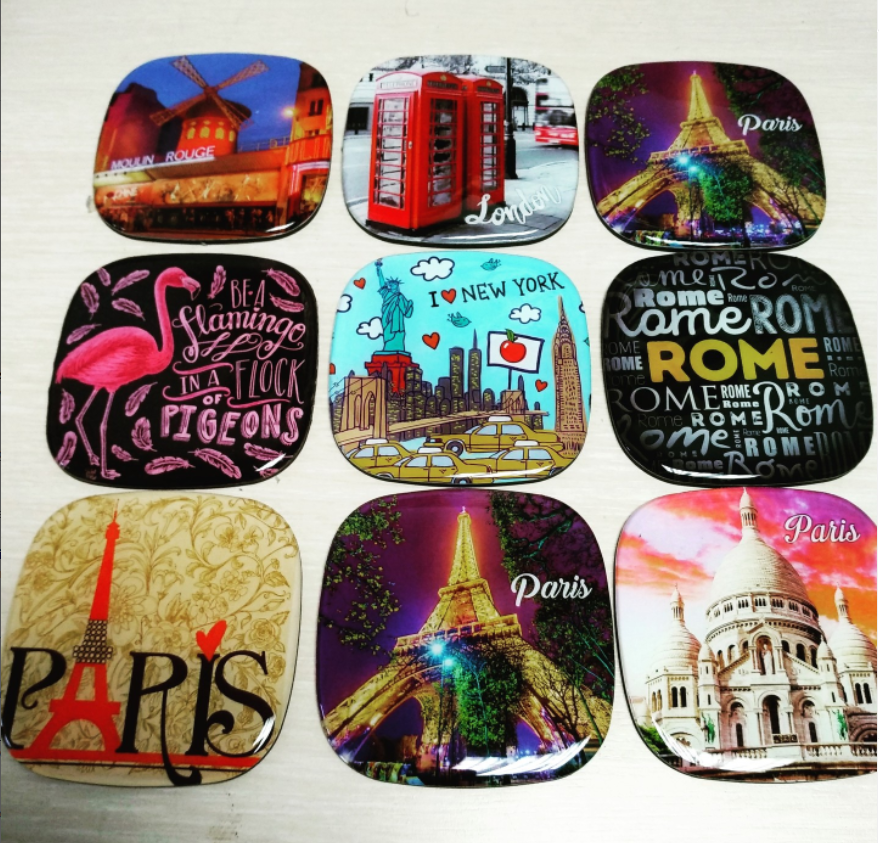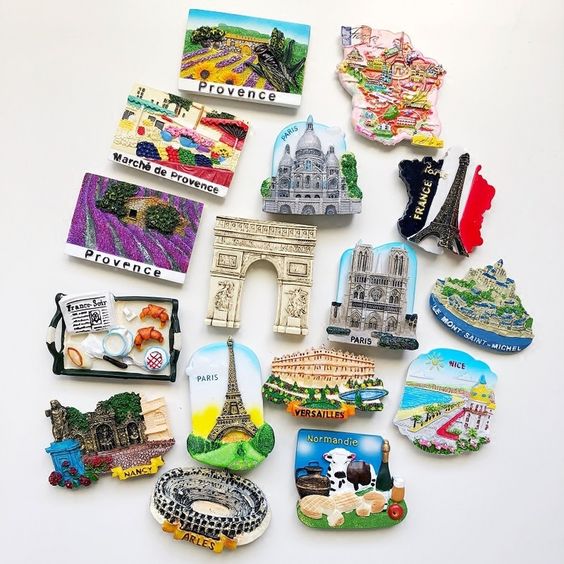The Procurement Paradox: Shifting Merchandise from Expense to High-Yield Investment
The global B2B landscape is undergoing a significant transformation. For decades, corporate merchandise—or “swag,” as it’s often called—was viewed as a tactical, often disposable, marketing expense. It was a line item managed by junior marketing staff, focused purely on the lowest unit cost.
Today, however, a profound shift is occurring. Sophisticated B2B companies, from Fortune 500 tech firms to high-growth startups, now recognize that custom branded merchandise is not an expense but a strategic, high-yield investment tool that drives tangible business outcomes. When implemented correctly, it functions as a physical, long-term advertisement and a powerful lever for strengthening high-value client relationships and nurturing employee engagement.
For international importers, wholesalers, and brand retailers currently focused on the tourism and souvenir sector, this realization presents a crucial expansion opportunity. By partnering with a specialized manufacturer capable of managing the complexity of both custom craft and corporate merchandise, you can access a vastly larger market that prioritizes quality, utility, and supply chain security over mere cost savings.
This article, tailored for the discerning procurement manager and strategic importer, dives deep into the true Return on Investment (ROI) of B2B corporate merchandise, outlining a skyscraper content strategy that transforms generic giveaway tactics into a measurable, strategic partnership.
Part I: Deconstructing the B2B Merchandise Value Chain (The “Why”)

In the US alone, the promotional products industry reached an estimated $26.78 billion in 2024, with projections indicating moderate growth towards $27.8 billion in 2025. This massive market underscores a fundamental truth: physical branded items work.
However, in the B2B domain, the metrics of success are far more rigorous than simple brand awareness. The strategic ROI of corporate merchandise is measured against key business objectives, including:
1. Enhancing Client Lifetime Value (CLV) and Retention
A core objective of B2B marketing is to move clients from transactional purchases to long-term strategic partnerships. High-quality custom merchandise serves as a tangible expression of appreciation and professionalism, reinforcing the client-vendor bond. A well-chosen, useful gift—such as a premium tech accessory or durable drinkware—becomes a permanent fixture on the client’s desk, serving as a continuous, positive reminder of the brand.
Strategic takeaway: The goal is not to distribute 10,000 cheap pens, but to provide 500 highly valuable items that contribute directly to client satisfaction and reduce churn risk. This sustained presence contributes significantly to long-term CLV.
2. Qualified Lead Generation and Conversion
At high-stakes industry events, trade shows, and conferences, the right custom merchandise acts as a powerful lure, significantly boosting booth traffic and qualifying leads. Branded giveaways draw people in, facilitating friendly and relevant conversations that can be converted into qualified sales leads.1
The data backs this up: A remarkable 79% of recipients are statistically more likely to engage and do business with a brand after receiving a promotional item. This high conversion signal demonstrates that quality merchandise is a crucial component of the lead-to-opportunity funnel.
3. Strengthening Employee Engagement and Culture
In the competitive war for talent, merchandise extends its ROI benefits internally. Branded apparel or specialized welcome kits are vital for onboarding, recognizing high performance, and unifying distributed teams. When companies invest in high-quality, desirable items for their own staff, it reinforces a positive company culture, driving internal brand loyalty and reducing the costs associated with high employee turnover.
Part II: The Skyscraper Outline – Moving Beyond Generic Swag

The fundamental challenge for procurement managers is how to source merchandise that stands out, avoids landfill status, and aligns with modern ethical standards. Simply following the basic advice found on entry-level marketing blogs is insufficient.
To truly generate high ROI, a strategy must be executed with a Manufacturer’s Mindset, focusing on utility, sustainability, and compliance.
Competitor Insights Baseline (What others cover):
- Utility & Quality: Focus on items used daily, such as tech accessories, quality drinkware, and premium branded apparel.
- Swag Bag Theming: Start with a purposeful theme, include personalization, and ensure high-quality presentation.
- Sustainability: Incorporate eco-friendly options to meet environmental goals and build client trust.
The Skyscraper Deep Dive: A Manufacturer’s Sourcing Checklist (What We Provide)
We expand on these foundations by integrating the key sourcing pain points that only a highly reliable B2B manufacturer can solve. This is the content depth that captivates strategic buyers.
A. The Criticality of High-Utility, High-Impression Products
ROI is maximized when the item stays in use for the longest possible duration. These items become long-term, low-cost advertisements.
- Tech-Forward Accessories: Think branded charging pads, custom USB drives, or unique phone accessories.
- Premium Drinkware: High-quality, laser-etched stainless steel bottles or custom resin coasters that showcase durability and design expertise.
- Custom Apparel: Not basic T-shirts, but high-end, private-label manufacturing focusing on quality cut-and-sew, embroidery, and specialized finishes.
For importers, this means seeking a manufacturer who offers low MOQ custom promotional products wholesale while maintaining meticulous quality control throughout the entire batch.
B. The Non-Negotiable Compliance Advantage: IP Protection
Design theft is arguably the biggest risk for corporate brands when outsourcing custom manufacturing. A simple blog post discussing themes is insufficient; a strategic partner must offer a documented IP protected corporate gift sourcing B2B protocol.
- Contractual Security: This involves mandatory, robust Non-Disclosure Agreements (NDAs) that are legally enforceable and specifically clarify the ownership of all proprietary tooling, molds, and designs.
- Applicable Protection: For most promotional items, the focus must be on protecting copyrights (for original artwork and designs) and trademarks (for company logos and branding).
- Jurisdictional Clarity: While the enforcement of Intellectual Property law may vary outside of domestic markets, the manufacturer must guarantee internal, proactive safeguards and standardized contractual procedures that align with international best practices. This level of detail transforms a perceived risk into a verified competitive advantage.
C. The New Mandate: Eco-Friendly Branded Merchandise Manufacturing
Sustainability is no longer a “nice-to-have”; it is a B2B sourcing mandate, especially for large corporations focused on Environmental, Social, and Governance (ESG) reporting. A successful merchandise strategy must include verifiable eco-friendly options.
A high-value supplier should detail their capacity for:
- Bio-Resin and Recycled Components: Offering keychains, magnets, and even snow globes made from recycled plastics or specialized bio-resins.
- Organic Textiles and Sustainable Packaging: Utilizing organic cotton or bamboo for apparel and ensuring recyclable or compostable packaging is standard.
- Low-VOC Manufacturing: For custom resin products, detailing the use of solvent-free, low-VOC bio-resin formulations for deep-pour applications, aligning with rigorous environmental demands.
When sourcing eco-friendly branded merchandise manufacturing Asia, these technical details provide the procurement team with the necessary compliance documentation.
Part III: Quantifying ROI – Data Comparison and Metrics That Matter

A strategic ROI discussion requires concrete metrics. We are moving away from the vague idea of “exposure” toward tangible, measurable marketing performance indicators.
Key Metrics for Measuring Merchandise ROI
1
- Conversion Rate: Tracking how many leads receiving a promotional item proceed to the next stage of the sales funnel.
- Customer Lifetime Value (CLV): Analyzing whether clients who receive quality merchandise exhibit higher retention rates or spend more over their relationship lifecycle.
- Cost Per Acquisition (CPA): Calculating the total cost of the merchandise divided by the number of sales or qualified leads generated by that campaign.
Data Showcase: Custom Merchandise vs. Traditional B2B Channels
To underscore the strategic value of custom merchandise, it is essential to compare its impact against traditional, high-cost digital marketing channels. The physical presence and utility of a promotional product far surpass the fleeting nature of digital impressions, often resulting in higher consumer engagement and brand recall.
The following table uses industry-verified data on promotional products and provides estimated comparisons to other common B2B marketing tactics:
| Marketing Channel | Action Rate (Likelihood to Engage) | Recall Rate (Brand Memory) | Duration of Impression | Strategic Value |
| Custom Merchandise (Physical) | 79% of recipients are more likely to do business | 85% of consumers remember the advertiser | Average 12+ months (Daily Utility Items) 1 | High CLV, Strong Relationship Building |
| Digital Display Ad | Low (often ignored/ad-blocked) | Estimated <15% (High clutter) | Seconds | Short-term awareness |
| Direct Mail/Brochure | Moderate (often discarded) | Estimated 40-50% (Physical presence) | Days/Weeks | Limited utility; quickly outdated |
| Email Marketing | Low (Average B2B Open Rate: ~20%) | Low (High inbox competition) | Immediate (Brief attention window) | Low CPA, but minimal trust building |
Conclusion from the Data: Custom branded merchandise is not a replacement for digital marketing; it is a vital physical amplifier. It achieves a near-permanent impression and drives a highly impactful action rate among recipients, a performance metric that is exceptionally difficult and expensive to replicate through digital-only channels. The physical item bridges the gap between digital interaction and long-term tangible trust.
Part IV: The Manufacturing Partnership Advantage (The “How to Source”)
For importers and wholesalers, the strategic opportunity lies in integrating corporate gifting strategy B2B into your existing sourcing capabilities. This requires a manufacturing partner who can handle the diversity of product types and the rigorous compliance demands of corporate clients.
A. The Versatility of Custom Manufacturing
A manufacturer capable of producing high-end tourism souvenirs (such as detailed custom resin pieces or complex OEM/ODM projects) is inherently positioned to handle the variety required for corporate merchandise. Look for expertise in:
- Precision OEM/ODM Services: The ability to execute brand-provided designs (OEM) or to collaborate on concept development (ODM), which is critical for creating private-label apparel and unique, bespoke corporate gifts.
- Material Science Expertise: Leveraging core competence in specialized materials, such as low-VOC resins for high-end corporate awards, sustainable plastics for tech accessories, and quality textiles for durable branded apparel.
This versatility ensures that your wholesale promotional products for clients meet diverse market needs, from high-volume trade show giveaways to exclusive C-suite executive gifts.
B. Supply Chain Resilience and Order Fulfillment
The strategic ROI is immediately undermined by logistical failure. A procurement manager’s primary anxiety is supply chain disruption, particularly when managing multi-site distribution (e.g., fulfilling swag bags for virtual events or onboarding kits for global offices).
A trusted B2B partner must demonstrate capabilities in:
- Advanced Inventory Management: Implementing a robust Warehouse Management System (WMS) to automate inventory tracking, order picking, and prevent costly stockouts or overstocking.
- Structured Fulfillment: Detailing structured fulfillment processes, including optimized picking and packing strategies, and providing real-time tracking updates to the buyer. Efficient fulfillment builds trust and drives repeat business, especially for global shipments.
- Navigating Incoterms: Expertise in simplifying the complexities of international shipping terms (e.g., FOB, CIF) to clearly define risk and responsibility during freight movement, ensuring a seamless logistical flow of goods.
C. Partnering for the Highest ROI Promotional Items
When evaluating product lines, strategic buyers consistently prioritize items that offer high utility and a long lifespan. The highest ROI promotional items are those that are integrated into the daily life of the recipient.
For the supplier, this means aggressively pursuing the following product categories where the potential for repeat B2B orders and high margins is greatest:
- Branded Apparel (Custom Apparel Manufacturer Private Label B2B): High-quality hoodies, jackets, or polished polos that employees and clients are proud to wear.
- Tech Accessories: Products that solve a daily problem, such as wireless chargers, branded earbuds, or high-capacity power banks.
- Premium Drinkware: Insulated tumblers and mugs, often utilizing durable, sustainable materials and precise etching or printing techniques.
For the importer, shifting volume toward these premium, high-utility products dramatically improves both the average order value and the strategic perception of the sourcing partnership.
Conclusion: Securing the Strategic Partnership
The era of transactional, cost-driven B2B merchandise sourcing is over. Modern procurement managers require a manufacturing partnership that delivers demonstrable ROI across client retention, lead conversion, and internal culture.
For international importers and wholesalers, the path to unlocking this lucrative corporate market lies in leveraging your manufacturing core: quality, transparency, and compliance. By proactively addressing B2B pain points—chiefly IP protection, ethical sourcing, and resilient supply chain management—you elevate the conversation from “What is your price?” to “How can we build a secure, long-term sourcing strategy?”
The commitment to delivering low MOQ custom promotional products wholesale, backed by IP protected corporate gift sourcing B2B protocols and a focus on eco-friendly branded merchandise manufacturing Asia, is the formula for positioning your business not just as a supplier, but as an indispensable strategic partner in the global B2B merchandising ecosystem.
This expansion from souvenir manufacturer corporate merchandise expansion is a crucial pivot for sustainable, high-growth revenue in the years ahead. It’s time to move beyond the transaction and build the relationship.
Actionable Keywords for B2B Importers/Wholesalers
To maximize the reach of this strategic content, the following keywords (KWs) and specific Long-Tail/Semantic Latent Indexing (SLI) KWs should be naturally integrated:
| Target Keyword Type | Keyword | Intent |
| High Intent/Core (Target) | Custom Branded Merchandise ROI | Researching strategic justification |
| Corporate Gifting Strategy B2B | Planning high-value client campaigns | |
| Wholesale Promotional Products for Clients | Sourcing stage, looking for suppliers | |
| High ROI Promotional Items | Product selection, seeking best utility | |
| Long-Tail/SLI (Manufacturing Specific) | IP protected corporate gift sourcing B2B | Critical compliance and risk mitigation |
| Eco-friendly branded merchandise manufacturing Asia | Sourcing for sustainability requirements | |
| Low MOQ custom promotional products wholesale | Testing new lines, managing inventory risk | |
| Souvenir manufacturer corporate merchandise expansion | Strategic business pivot/partner search | |
| Custom apparel manufacturer private label B2B | Seeking high-end apparel capabilities | |
| Sustainable water bottles wholesale B2B | High-utility product sourcing | |
| Tech accessories custom branded wholesale | High-demand product category sourcing | |
| Promotional product effectiveness statistics | Validating investment/Data-driven procurement | |
| B2B promotional gifts client retention | Connecting merchandise to business goals | |
| Private label corporate merchandise factory | Seeking direct manufacturing capability | |
| Custom resin corporate awards wholesale | Leveraging specific core factory capability |
- Resin vs. Ceramic: A Data-Driven B2B Comparison for High-Volume Souvenir Orders - February 4, 2026
- AQL 2.5 vs. 4.0: Defining Acceptable Defect Thresholds for Mass-Produced Tourist Magnets - January 28, 2026
- The Importer’s Guide to Total Landed Cost (TLC): Calculating the Real Price of Resin Souvenirs from Quanzhou - January 21, 2026




